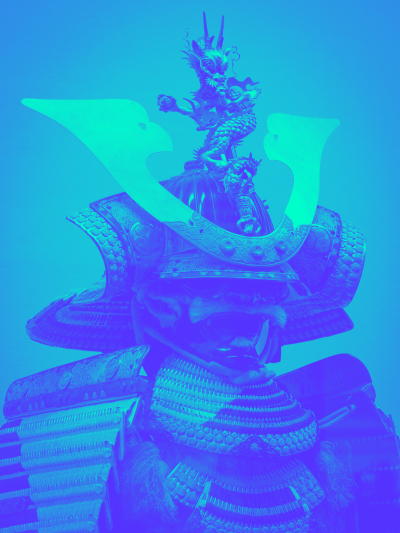In our Sino-Japanese way of writing, this is pronounced ōmushojū jijōgoshin.
Regardless of what a person does, when he engenders the mind that thinks about doing something, the mind stops in that thing. Therefore, one should engender the mind without a place for it to stop.
If the mind is not engendered, the hand will not move forward. Those who when moving engender the mind that ordinarily stops in that movement, but do not stop at all in the course of the action—these are called the accomplished men of all Ways.
The mind of attachment arises from the stopping mind. So does the cycle of transmigration. This stopping becomes the bonds of life and death.
One looks at cherry blossoms or autumn leaves, and while engendering the mind that is looking at them, it is essential not to stop with them.
Jien’s poem goes:
The flower that would surrender its fragrance
before my brushwood door
Does so regardless.
I, however, sit and stare—
How rueful, this world.
This means that the flower gives off its fragrance with No-Mind, while I stare at it, my mind is going no further. How regrettable, that the mind has so impaled me.
Make it a secret principle in either seeing or hearing not to detain the mind in one place.
The word seriousness is elaborated on by the saying, “One aim with no distractions.” The mind is settled in one place and is not allowed elsewhere. Later, even if you unsheathe your sword to strike, it is considered essential not to allow the mind movement in the direction of the strike. Especially in such matters as receiving commands from your lord, one should keep the word seriousness in the mind’s eye.
In Buddhism, we also have the mentality of seriousness. When a bell called the Bell of Reverence is rung three times, we place our hands together and do obeisance. This attitude of reverence, in which one first intones the name of the Buddha, is synonymous with having “one aim with no distractions” or “one mind without confusion.”
In Buddhism, the mentality of seriousness is not the deepest level. Grasping one’s mind and not letting it become confused is the discipline of the novice just beginning to learn.
This practice, when applied for a long period of time, leads to advancement to the level of freedom in which one can let the mind go in any direction. The level mentioned above of “engendering the mind with no place to abide” is the highest level of all.
The meaning of the word seriousness is in holding the mind in check and not sending it off somewhere, thinking that if one did let it go, it would become confused. At this level there is a tightening up of the mind and not an iota of negligence is allowed.
This is like a baby sparrow being caught by a cat. To prevent a recurrence, a string is then always tightened around the cat, and it is never let go.
If my mind is treated like a tied-up cat, it will not be free and will likely not be able to function as it should. If the cat is well trained, the string is untied, and it is allowed to go wherever it pleases. Then, even if the two are together, the cat will not seize the sparrow. Acting along these lines is the meaning of the phrase “engendering the mind with no place for it to abide.”
Letting go of my mind and ignoring it like the cat, though it may go where it pleases, this will be using the mind in the way of not having it stop.
If we put this in terms of your own martial art, the mind is not detained by the hand that brandishes the sword. Completely oblivious to the hand that wields the sword, one strikes and cuts his opponent down. He does not put his mind in his adversary. The opponent is Emptiness. I am Emptiness. The hand that holds the sword, the sword itself, is Emptiness. Understand this, but do not let your mind be taken by Emptiness.
When the Zen priest at Kamakura, Mugaku, was captured during the disturbances in China and was at the point of being cut down, he quoted the gatha, “With the speed of a flash of lightning, / Cut through the spring breeze,” and the soldier threw down his sword and fled.
Mugaku meant that in wielding the sword, in the infinitesimal time it takes lightning to strike, there is neither mind nor thought. For the striking sword, there is no mind. For myself, who is about to be struck, there is no mind. The attacker is Emptiness. His sword is Emptiness. I, who am about to be struck, am Emptiness.
If this is so, the man who strikes is not a man at all. The striking sword is not a sword. And for myself, the person who is about to be cut, in a flash of lightning, it will be like cutting through the breeze that blows across the spring sky. It is the mind that absolutely does not stop. And it is not likely that the sword will react to cutting through the wind.
Completely forget about the mind and you will do all things well.
When you dance, the hand holds the fan and the foot takes a step. When you do not forget everything, when you go on thinking about performing with the hands and the feet well and dancing accurately, you cannot be said to be skillful. When the mind stops in the hands and the feet, none of your acts will be singular.
If you do not completely discard the mind, everything you do will be done poorly.
